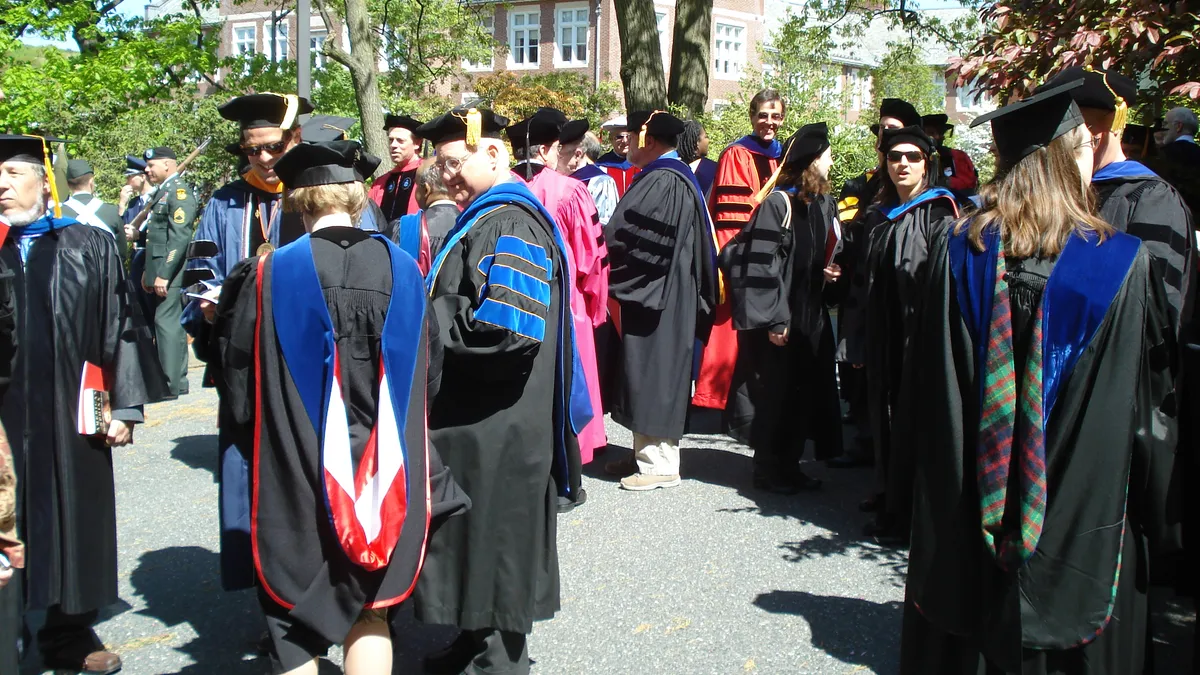Much has been said about millennials and the changes they’re affecting in the workplace, and with good reason. Today, they comprise the largest share of the U.S. workforce, and they’re quickly becoming known as the generation that is not afraid to buck conventional norms when it comes to office culture. Suits and ties are being replaced by casual business attire, and swanky personal office space is being traded for open-air shared work environments to promote collaboration among colleagues.
Millennials are also bucking generational attitudes related to value of higher education, in particular, doctoral education. Seventy-eight percent of millennials agree that professionals with doctoral-level education are perceived as superior in the workplace, compared with 67% of U.S. adults overall, according to a University of Phoenix School of Advanced Studies survey conducted earlier this year.
And they may be onto something. Here’s why:
Today’s innovation economy requires businesses to be nimble and responsive to demands, which requires leaders who possess the ability to identify new ways to improve operations and implement efficiencies to ultimately improve a company’s bottom line. In my view, a key ingredient is companies having employees who are trained as leaders and know how to conduct organizational, market and industry research that informs creative actions to influence policy and guide decision-making.
In a recent survey conducted by Harris Poll, we saw results of how people perceive a doctoral education. While many respondents perceive that people who hold a doctoral degree can be valuable to the success of an organization, it is fascinating to see the responses from a different survey of those who have doctoral degrees as nearly all doctoral degree holders report having applied their degree after achieving it.
Benefits of doctoral education extend beyond acquiring specialized knowledge. When asking the question of today’s working adults who have obtained a doctoral degree, two-in-three say they have used their degree to assist their organization and one in four have repositioned themselves in their organization.
As executive dean of University of Phoenix School of Advanced Studies, I’ve witnessed a variety of students who have gone through doctoral programs. While some have taken the road to teaching in academia, many have opted for leadership roles in the private sector and government, and have used their degree to help lead their organization, and impact change in their organizations and communities.
Take Dr. Victoria Trapp, a change management professional for a leading multinational athletic wear provider, for example. After obtaining a master’s in sports administration and juris doctorate, Dr. Trapp completed her doctorate in management and organizational leadership. Throughout her doctoral program, Dr. Trapp focused her research on the influence of participation in organized sports on leadership abilities of women in the c-suite. Today, she applies her research and education to infuse change leadership into her organization’s culture, and serves as a regular presenter on change leadership.
A doctoral experience can include: in-depth, thought-provoking group discussions, opportunities to network and study with professionals in your field, engagement in scholarly communities who share your interests and completion of your own personal dissertation—all which refine your skills as a researcher and build theoretical knowledge that can help you enhance your leadership skills in your organization and within your community.
Dr. Hinrich Eylers is executive dean of the University of Phoenix School of Advanced Studies.













